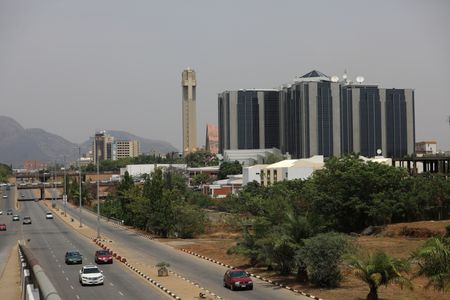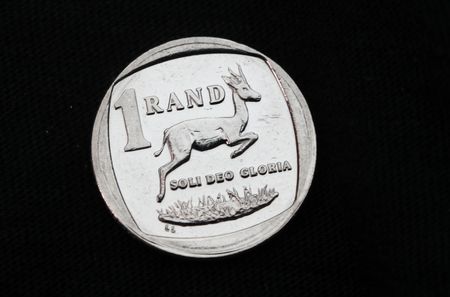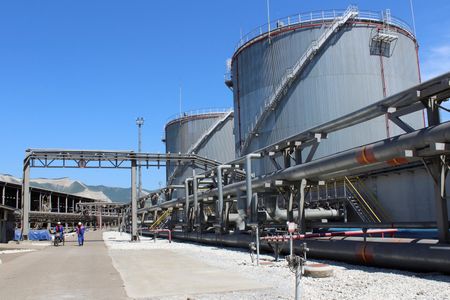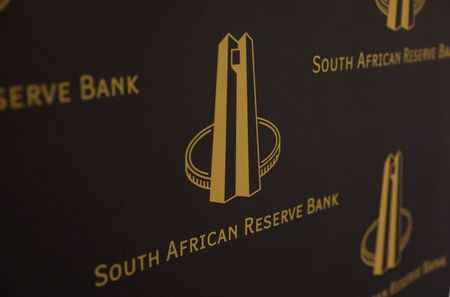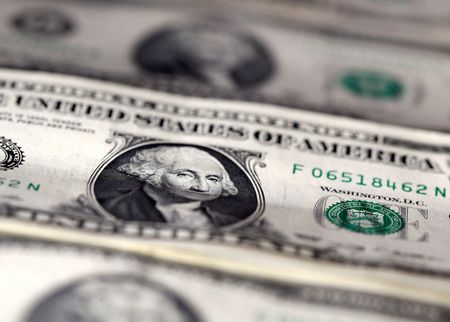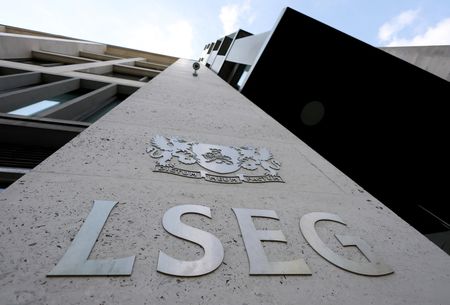By Elisha Bala-Gbogbo and Chijioke Ohuocha
ABUJA (Reuters) -Nigeria’s central bank left its main interest rate unchanged on Tuesday, saying it wanted inflation to fall further, but it lowered a deposit rate in a sign of confidence in the economic outlook.
The decision came as a surprise as economists polled by Reuters had predicted a 1-percentage-point cut to the Monetary Policy Rate (MPR), following up on the first rate reduction since 2020 in September.
Inflation slowed for the seventh month in a row in October to 16.05% year on year.
But central bank Governor Olayemi Cardoso said inflation was still too high, and the MPR was maintained at 27%.
“Headline inflation remains high at double digits, requiring sustained efforts towards moderating it further,” Cardoso told a press conference.
“The decision was underpinned by the need to sustain the progress made so far towards achieving low and stable inflation.”
Cardoso said the bank was adjusting the corridor on its Standing Facility to +50 to -450 basis points around the MPR, cutting its deposit rate and encouraging banks to lend rather than parking money with the central bank.
Razia Khan, head of Africa research at Standard Chartered, said the changes to the standing facility were the real talking point. “It is a very significant de facto easing, signalling confidence in both the inflation trajectory and FX stability.”
Another reason why the central bank held off from cutting its key rate could be that it wants to monitor whether inflation rises before its next policy meeting, analysts said.
“If they cut rates now, January could reveal that it did not make sense. They moved the next meeting to February, which means that they would be using January inflation,” said Tajudeen Ibrahim, director of research at investment firm Chapel Hill Denham.
Cardoso previously said the central bank is gunning for inflation to fall to single digits in the next few years.
Inflation hit repeated 28-year highs last year, spurred by President Bola Tinubu’s moves to devalue the naira currency and remove energy subsidies after taking office in 2023.
(Reporting by Elisha Bala-Gbogbo and Chijioke Ohuocha; additional reporting by Ayen Deng Bior in Dakar; writing by Bate Felix and Alexander Winning; editing by Mark Heinrich)

